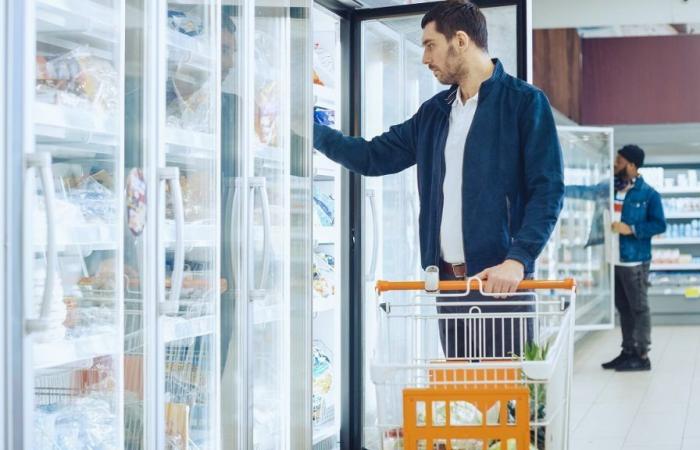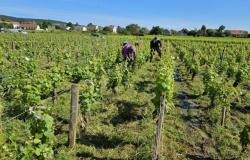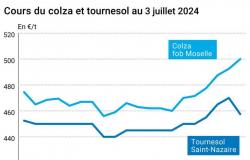Comparative studies have evaluated the vitamin and fiber content of some frozen fruits and vegetables as well as their fresh equivalents. It has emerged that five frozen fruits and vegetables are healthier than some fresh products.
The leitmotif of the Ministry of Health, which consists of including at least five fruits and vegetables in one’s daily consumption, is already a reality. This is what emerges from the survey conducted by CREDOC in 2019 on French eating habits. This Research Center reveals and denotes an increase in the consumption of fruits and vegetables among children and adults. However, many people wonder about the best way to consume them. Frozen or even fresh, especially with theinvasion pesticides. Research has proven that some are better when frozen. We tell you everything.
Which frozen fruits and vegetables are healthier?
Green beans and carrots
THE green beans are highly prized in French cuisine, especially for their health benefits. Known for containing many fibers that are good for the transit intestinalthese vegetables reduce the risk of cancer and limit cholesterol in the blood. Some studies claim that fresh green beans are better than frozen ones. However, they should be frozen as soon as they are picked so that they do not lose their vitamin content. Similarly, it is important to know that carrots display higher vitamin A and fiber content when frozen than when fresh.
Apricots and raspberries
It’s no secret that frozen fruits and vegetables offer many benefits. First of all, they are already washed and cut, which offers a significant time saving for busy people on a daily basis. In addition, some are more nutritious when frozen than when fresh. This is the case, for example, with apricots, whose vitamin C content is higher when frozen. As for raspberries, they retain their vitamins C and B9 higher than when they are very fresh. Thanks to research by experts, you no longer have any reason to hesitate to take some at home.
Frozen fruits and vegetables are nutrient reservoirs
Studies by some nutritionists have shown that frozen fruits and vegetables keep excellent sources of vitamins especially when the storage chain is maintained. After three months in the freezer, some such as peas, green beans, strawberries and blueberries retain their vitamin C, E and B2 content. Others tend to increase their vitamin C, E and B2 content. vitamins C after 90 days of storage.
The nutritional benefits of freezing
The difference between freezing and deep freezing?
Freezing and freezing are two preservation methods that have a certain difference in the cooling process. Frozen products are referred to when they are at a slow cooling temperature of -18°C, while frozen products are referred to when they are at a slow cooling temperature of -18°C. freezing This is when the cooling is ultra-fast. Thus, freezing is the most widespread preservation method that allows you to store and make reserves of food compared to deep freezing, which is industrial. The latter is done by creating ice crystals that do not deteriorate the food, but slow down the activity of microbes and the action of enzymes without altering their nutritional qualities.
The right time to keep food fresh
Products frozen immediately after picking have very good nutritional qualities. In addition, they can be kept for months in this frozen state provided that they are at a permanent temperature below -18°C. Once the interruption in the cold chain has been made, it eliminates the nutritional value of food and threatens the health security of the consumer, because bacteria develop and deteriorate the food. Nutritionists recommend consuming all defrosted products directly and not refreezing them.
When fresh produce loses its nutritional value
Nathalie Négro, head of the Nutritional Center at the Brides-les-Bains Thermal Baths, declared in an article published in The Parisian “Frozen foods have nothing to envy fresh products”. The latter undergo many significant nutritional losses when they are not consumed immediately after harvest, particularly during their storage in warehouses or during transport for displays, as reported by Femme Actuelle. In addition, the association 60 Million Consumers has analyzed the nutritional quality of certain families of fruits and vegetables by comparing their preservation techniques. It appears that some frozen foods are richer in vitamins compared to their fresh state.






